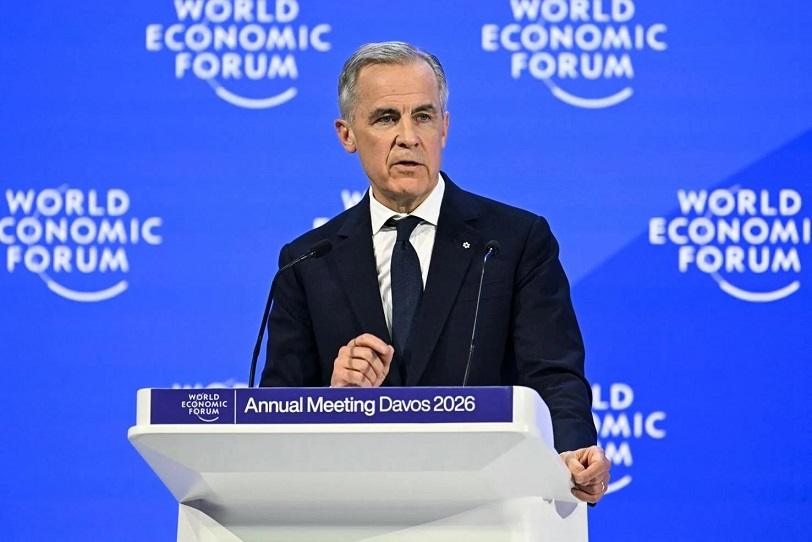Alexis Tsipras has always understood the power of storytelling. Now, with the publication of his 760-page book Ithaca, Greece’s former prime minister attempts not only to reframe the turbulent years of the Greek crisis but also to rehabilitate an image scarred by political miscalculations, internal party rifts, and a legacy still fiercely debated. Tsipras, who once steered Greece to the edge of financial collapse through a high-risk referendum and a controversial alliance with the nationalist right, now presents himself as a seasoned statesman, a misunderstood Europhile, and the rare figure capable of stitching back together a fragmented Left.
This is not a quiet retirement memoir. It is a strategic intervention, the opening move in what increasingly looks like a carefully staged comeback. And it arrives at a moment when the Greek Left resembles, to borrow a Homeric analogy Tsipras himself might appreciate, Penelope besieged by numerous, ambitious, and disastrously directionless suitors. Since his departure from SYRIZA’s helm, the political space he once dominated has unraveled into factional disputes, ideological drift, and a parade of short-lived contenders. Charisma, discipline, and clarity have been in notably short supply.
Tsipras understands this. He sees the vacuum. In a landscape where few progressive figures possess the ability to command public attention, he appears to recognize that he could -at least in theory- reclaim the role he relinquished. Ithaca is his attempt to prepare the ground for that possibility: to argue that he has evolved, that his critics misread him, and that the story of Greece’s most volatile political decade looks different when recounted in his own voice.
But the book, released today by Gutenberg Editions, is not merely a retrospective. It is, unmistakably, an overture to the future, a carefully constructed case for a political comeback anchored in what Tsipras calls a “new progressive patriotism.”
A Memoir as Intervention
The book’s preface, titled “Time for My Voice to Be Heard,” signals Tsipras’ ambition not only to revisit the past but to lay claim to its interpretation. Rather than simply defending his record, he uses Ithaca to narrate the behind-the-scenes dynamics of his years in office: the strategic miscalculations, the personalities that shaped historic decisions, and the internal battles that fractured his party.
What emerges is part confessional chronicle, part insider account. Tsipras moves between sharp criticism of former allies, self-critique, and detailed explanations of negotiations with European leaders, constructing a narrative that seeks to justify his core decisions while acknowledging their costs. He presents his evolution not through broad declarations but through these reconstructed moments, using anecdote and backstage detail to argue that he has learned from the very crises that defined him.
Between Criticism and Self-Criticism
What distinguishes Ithaca is not simply the new details it discloses but the force of Tsipras’ own perspective. The memoir is driven by his crisis-era anecdotes—selective, vivid, and unmistakably filtered through his vantage point. He smooths some edges, but there is no polite avoidance of conflict; he names names and assigns responsibility with disarming directness. He often adopts a candid tone, admitting errors while unapologetically defending his core political choices
On the 2015 referendum, arguably the defining moment of his premiership, he writes unambiguously: “It was my decision.” The night he called it, he recounts, was filled with “doubt and fear,” but he insists that the situation as presented by Greece’s creditors had become “a trap,” leaving him, he argues, with no other path.
Tsipras describes conversations with then-German Chancellor Angela Merkel and French President François Hollande, outlining his belief that the “no” vote could open new negotiating ground. He also dismisses the idea that Russia was ever prepared to offer Greece meaningful financial support; Vladimir Putin, he writes, rejected even symbolic assistance, reportedly telling him such funding would be like “throwing money in a trash bin.”
Allies, Adversaries, and the Weight of Personalities
Some of the sharpest pages concern the internal dynamics of his own government. Yanis Varoufakis, his original finance minister, receives one of the book’s harshest assessments. Tsipras accuses him of indulging in self-promotion “flirting openly with vanity,” and contends that Varoufakis’ personality and behavior quickly turned him from an asset into a liability, someone distrusted across the Eurogroup, he says, “not only by our opponents but by our potential allies and even his own staff.”
Zoe Konstantopoulou, the former Speaker of Parliament, is portrayed as consumed by “self-destructive intransigence” that, according to Tsipras, led to moments in which Parliament “was turned into a spectacle.”
At the same time, he takes responsibility for his own shortcomings, describing SYRIZA during his leadership as a “disorderly army” plagued by infighting, factional independence, and a lack of organizational discipline. Tsipras concedes he “was not decisive” enough in managing his party and that he “stumbled on the small things.”
The ANEL Experiment and Its Cost
Tsipras also revisits his controversial coalition with the right-wing Independent Greeks (ANEL), acknowledging that he underestimated how negatively this partnership would be perceived in Europe. Though he says his cooperation with ANEL leader Panos Kammenos was functional on a practical level, he concedes the political cost exceeded expectations and weakened Greece’s negotiating position in Brussels.
Mitsotakis and the Present Moment
The book’s contemporary political edge is impossible to miss. Tsipras delivers a blistering critique of Prime Minister Kyriakos Mitsotakis, whom he accuses of treating the government “as his personal fiefdom,” dismissing constitutional limits and constructing a “closed, authoritarian, self-serving system” under the guise of an efficient technocratic state.
This juxtaposition , Tsipras’ self-portrayal as a flawed but earnest democrat versus what he describes as an increasingly illiberal status quo, forms the narrative spine of Ithaca. It is a comparison clearly designed to reframe how he is perceived by both supporters and skeptics.
Crisis, Tragedy, and Accountability
One of the book’s most emotionally charged sections concerns the 2018 wildfire in Mati, one of the deadliest disasters in modern Greek history. Tsipras writes of “personal devastation,” recalling that, for the first time in his public life, he caught himself whispering, “Why, God?”—a moment he presents as revealing the human vulnerability behind the office.
Such passages appear crafted to present a more reflective, more mature Tsipras: not only the tactician and negotiator, but a leader who has absorbed the weight of national tragedy.
The International Stage
Foreign relations run throughout the memoir. Hollande emerges as a pivotal ally; President Barack Obama, Tsipras writes, offered crucial behind-the-scenes encouragement after the referendum, warning him that powerful forces within Europe were eager to push Greece toward abandoning the euro and urging him to remain calm as negotiations intensified.
Tsipras also emphasizes repeatedly that he was never an advocate of leaving the eurozone, distancing himself from hard-line members of his own party who favored a return to a national currency.
Lessons, Regrets, and the Path Forward
In one of the book’s more interesting moments, Tsipras admits mishandling the Novartis corruption investigation, saying he failed to appreciate the political and institutional pitfalls of the approach his government took. The result, he writes, was a “problematic decision” that carried political and ethical costs.
He also recounts the behind-the-scenes search for a successor when he stepped down as SYRIZA leader, noting that both Effie Achtsioglou and Alexis Haritsis declined his offers. His assessment of SYRIZA’s eventual new leader, Stefanos Kasselakis, is scathing; he portrays him as wholly unprepared and unfamiliar with Greek political realities.
The Calling of “Ithaca”
The book closes with a metaphor unmistakable to any Greek reader: the journey to Ithaca. But Tsipras reinterprets the destination not as an end point but as a place of rest before the next voyage. “Once you reach Ithaca,” he writes, “you arm the ship again for new horizons.”
For Tsipras, this metaphor is not literary flourish. It is political signal. He argues that progressives in Greece and beyond must craft a new narrative, one capable of inspiring an exhausted public and uniting diverse movements around shared democratic and social goals.
Ithaca is thus equal parts confession, defense, and proclamation. It is a reminder that Tsipras still sees himself not as a figure of the past, but as someone preparing, once again, to take his place on deck.








































